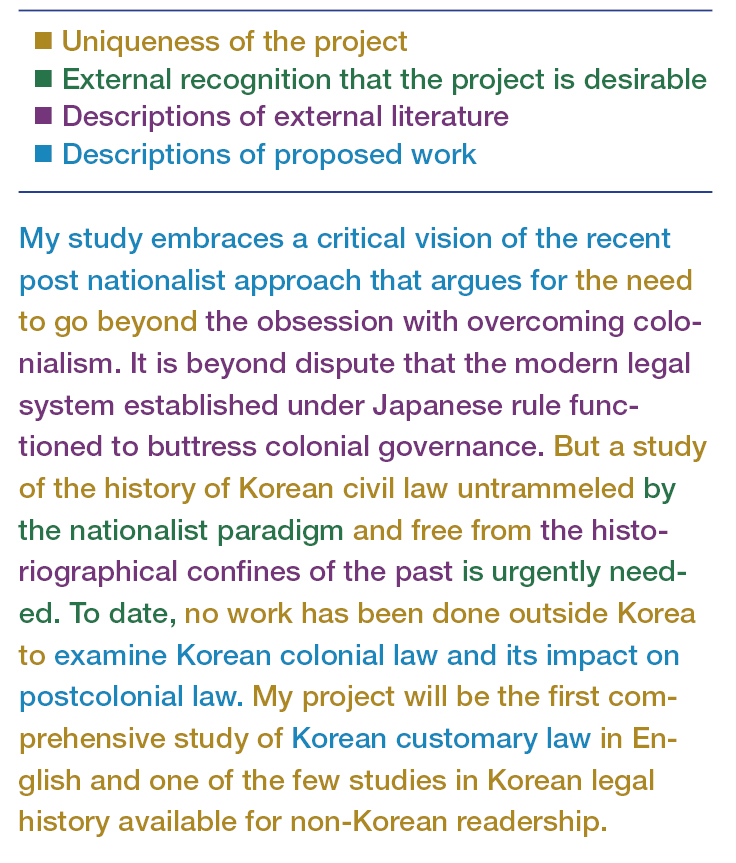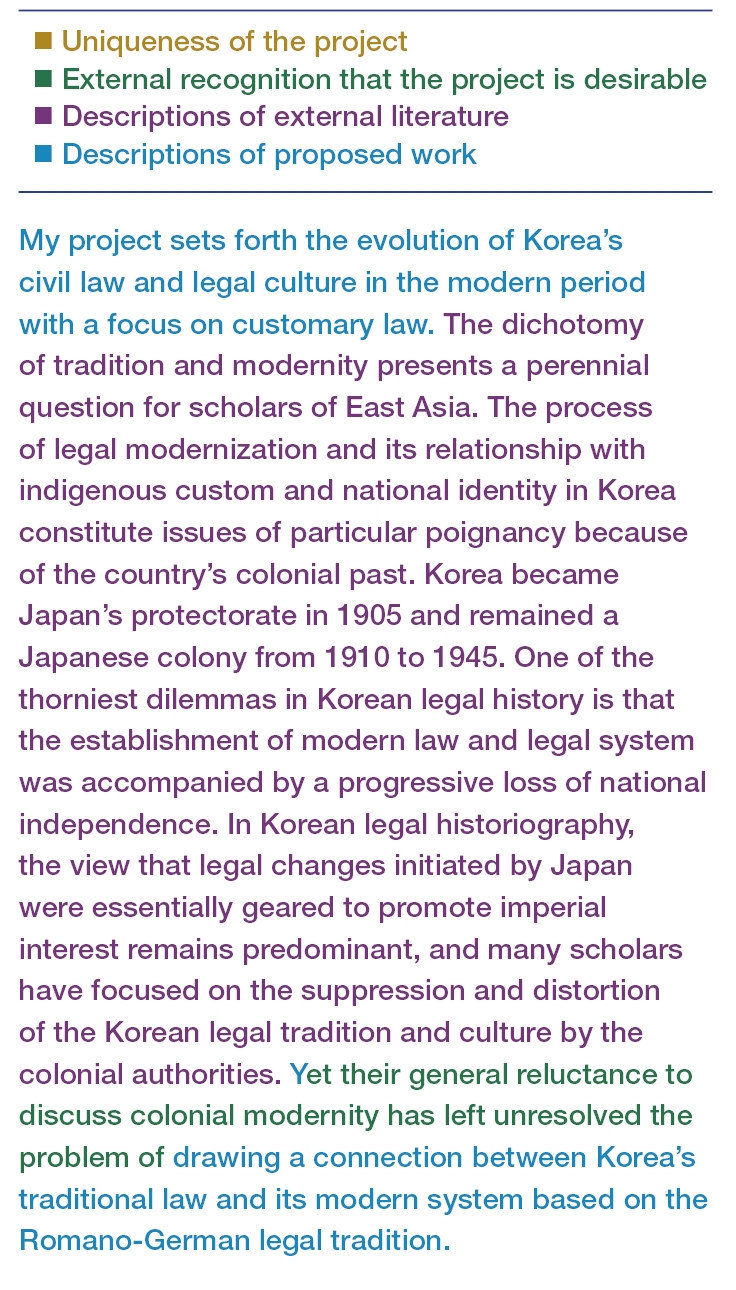First and Never
Case Study 2: A Nationalist Blind Spot
 Even grammatically, this is a fascinating "my project will be the first" sentence:
almost all of its meaning is stored in a single qualifier. One can imagine that there
are many comprehensive studies of Korean customary law, but this is the first such
study in English. Why does this matter?
Even grammatically, this is a fascinating "my project will be the first" sentence:
almost all of its meaning is stored in a single qualifier. One can imagine that there
are many comprehensive studies of Korean customary law, but this is the first such
study in English. Why does this matter?
References to an "obsession with overcoming colonialism," a "nationalist paradigm and...the historiographical confines of the past" suggest an answer rooted in the nation-state. Thus it is less about being in English than about lying outside of Korean historiography. On a side note, one has to wonder if an American grant agency would fund a presentation of more or less the flipside of this, which characterized entire sections of American historiography as driven by "obsession." I think the tone would have to shift, and use more neutral academic lingo such as revises the dominant narrative. Either way, let's hop back to the opening paragraph of this narrative (below):
 There is a clear story being told here, of an entire field being warped by a certain
reluctance based in national history. The scholarly hole is a product of this reluctance,
and the resultant proposal likely to straighten things out.
There is a clear story being told here, of an entire field being warped by a certain
reluctance based in national history. The scholarly hole is a product of this reluctance,
and the resultant proposal likely to straighten things out.
The general rhetorical pattern is that a large amount of scholarship is reduced to a tendency that the author has observed (obsession with overcoming colonialism). This tendency is then dismissed. The nation-specific overtones are unique, as are the forcefulness of the argument. But, as we will see, the style of argumentation is common: identify tendencies within a copious literature, then explain how your perspective confronts or revises that tendencies.
Contact:
Nural Akchurin, Associate Dean for Research
College of Arts & Sciences
806.834.8838
nural.akchurin@ttu.edu
![]()
College of Arts & Sciences
-
Address
Texas Tech University, Box 41034, Lubbock, TX 79409-1034 -
Phone
806.742.3831 -
Email
arts-and-sciences@ttu.edu
